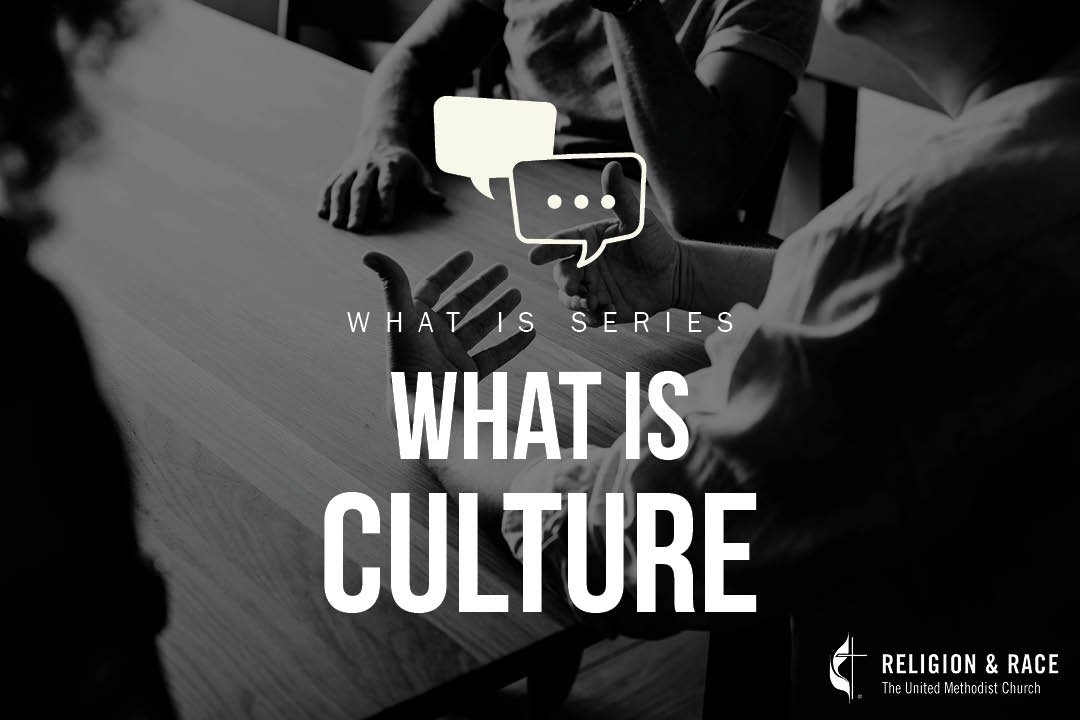What Is Culture?
As humanity’s understanding and discussion of the concepts of race, racism, and antiracism have evolved over generations, so have the words and phrases we use as we continue the work of obeying God and advancing racial justice.
In this “What Is?” series, the General Commission on Religion and Race offers this compilation of concise definitions, examples, and Biblical/theological foundations to create common vocabulary for Christians as we engage in anti-racism work.
Our hope, as you engage this series, is that the learning equips you to move into deeper waters in anti-racism work in your respective context.
Visit the series homepage for more information on other anti-racism resources.
Definition:
Culture comprises those norms, practices, rituals, and values, which are taught to and learned by people of a shared group or shared contexts.
Dialects, slang, religious rituals, how food is prepared, cleansing and purification practices, table manners, marriage and family systems are all examples of culture. For many people, their cultures overlap.
Example(s) of Culture:
The Stanford University Encyclopedia of Philosophy, asserts that “any one person can be a member of multiple cultures.” For example, a female college professor from Canada can be a member of the Canadian culture, the Ottawa culture, the culture of women, the Jewish culture, immigrant culture, and academic culture at the same time.”
Cultural norms, values, and practices exist in specific contexts. For example, people born and reared in Mozambique may speak Portuguese (and probably at least one of the 60 Bantu dialects spoken in Mozambique*). They are most likely to speak Portuguese if they live, work, and socialize in Portugal or Angola, or Mozambique, or if they are among Mozambican Portuguese-speakers in other places.
*According to translatorswithoutborders.com
Biblical/Spiritual/Theological Framing or References:
Throughout history, the cultural practices, languages and values of nonwhite, white Christians have deemed non-European people as “heathen,” “foreign,” and “unchristian.” Yet, God’s kin-dom on earth is open to every person, just as they are. All people are created in God’s holy image and a part of God’s human family. As Revelation 7:9 declares:
After this I looked, and there was a great multitude that no one could count, from every nation, from all tribes, peoples, and languages, standing before the Lamb.
All people throughout the earth live and function in various cultural contexts. The work of Christians is to live out the Word of God in ways that embrace and celebrate one another’s cultures and to work against cultural bias and bigotry.
Reflection Questions:
Make a list of 10 norms, values, and practices that reflect your culture (i.e., your language/dialect/accent, typical foods in your family/community, mode of dress, etiquette, what you call other people from your cultures) and list what cultures they reflect (i.e., Caribbean, young-adult, U.S. Christian, small-town, rural/urban, etc.).
What norms, values, and practices in your faith community mirror those of your culture(s)? Who have you noticed in your faith community are part of cultures different than yours?
What does your pastor or churches school teach you about engaging people who speak different languages/dialects, eat different foods, or who come from different countries than you do? If it is never mentioned in church, why do you think that is the case?
How does your Christian faith advise you to interact with people whose cultural norms, values, and practices are significantly different than yours? Which Bible stories can you name that would inform your faith? (If you cannot think of any, ask your pastor or church- school teacher.)
Additional Resources:
10 Honorable Ways to Learn About Another Culture (From GCORR)
Engaging Your Community With Cultural Sensitivity (From UMC Discipleship Ministries)

